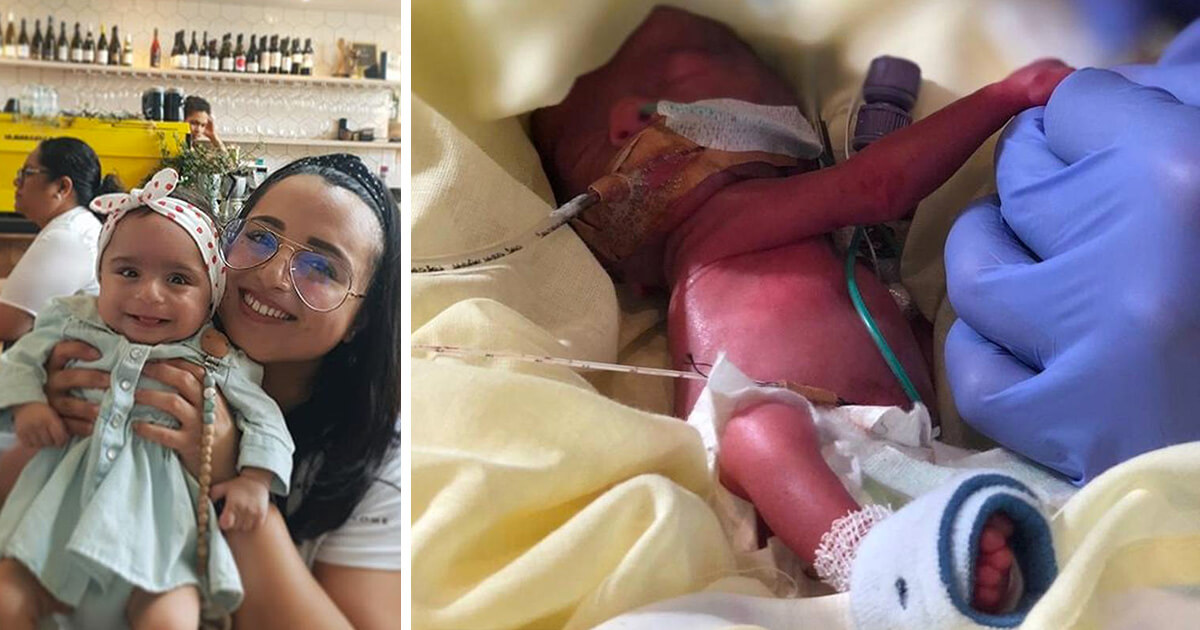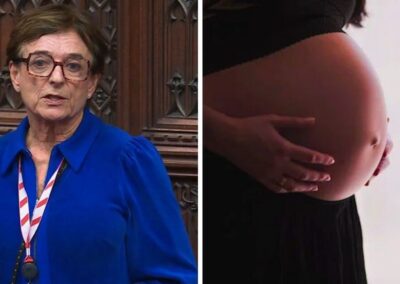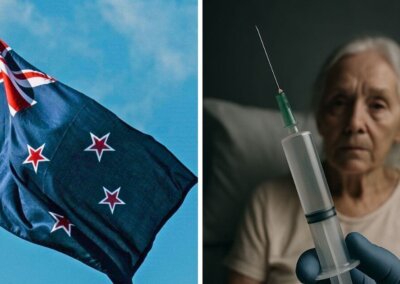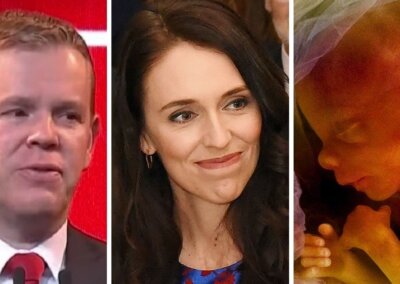A baby girl given just a 30% chance of survival has beaten the odds and will soon celebrate her first birthday after her parents rejected abortion.
Amairah Makan weighed just 490g when she was born by emergency caesarean section at 29 weeks, making her one of New Zealand’s tiniest babies to survive premature birth.
The Auckland tot is now healthy and happy, though nearly half the average weight for her age at just under 5kg, as she approaches her first birthday on 25 February.
Amairah’s mother and father, Kainat and Piyush, were told at the 20-week pregnancy ultrasound scan that their daughter wasn’t growing and that the baby’s prognosis “didn’t look good“.
At that point, doctors told the first-time parents they faced either a delivery at 30 weeks or a stillbirth and offered them an abortion.
Kainat told New Zealand news website Stuff that it was “was the biggest shock” of their lives.
Determined to give their daughter a chance, they declined the abortion.
By 26 weeks, Kainat developed preeclampsia and was hospitalised until Amairah was born weighing just enough to be cared for by the neonatal doctors in Auckland Hospital’s Neonatal Intensive Care Unit (NICU).
Amairah’s rough first year continued and she suffered from a range of medical problems, including chronic lung disease, respiratory distress syndrome, and retinopathy. She also had two surgeries for bowel obstruction and developed multiple infections, needed multiple blood transfusions, ultrasound scans, X-rays and MRI.
Kainat said: “When she was born, I didn’t even see her, I didn’t even hug her, they just took her. We had our first cuddle 12 days after she was born.”
Amairah is now thriving under the care of developmental therapist and dietician.
One month ahead of Amairah’s first birthday her mother exclaimed: “She’s such a happy child, she’s smiling all the time at strangers, she barely cries”.
New Zealand’s Prime Minister Jacinda Ardern has championed a Government Bill to introduce extreme abortion legislation to New Zealand. The Bill will introduce abortion up to birth for babies with disabilities such as Down’s syndrome or cleft lip and palate.
Currently, there is a 20-week time limit for disability-selective abortions in New Zealand law.
The proposed legislation will see this time limit removed and abortion for babies prenatally diagnosed with Down’s syndrome and other disabilities will be available up until birth, with the approval of a single health practitioner.
A large number of parents have publicly voiced their concerns about the harmful impact this Bill will have on people with Down’s syndrome.
Last month, thousands of people gathered in the New Zealand’s capital city to urge their political leaders to defend human life ahead of an expect vote on the extreme abortion bill later this year.












